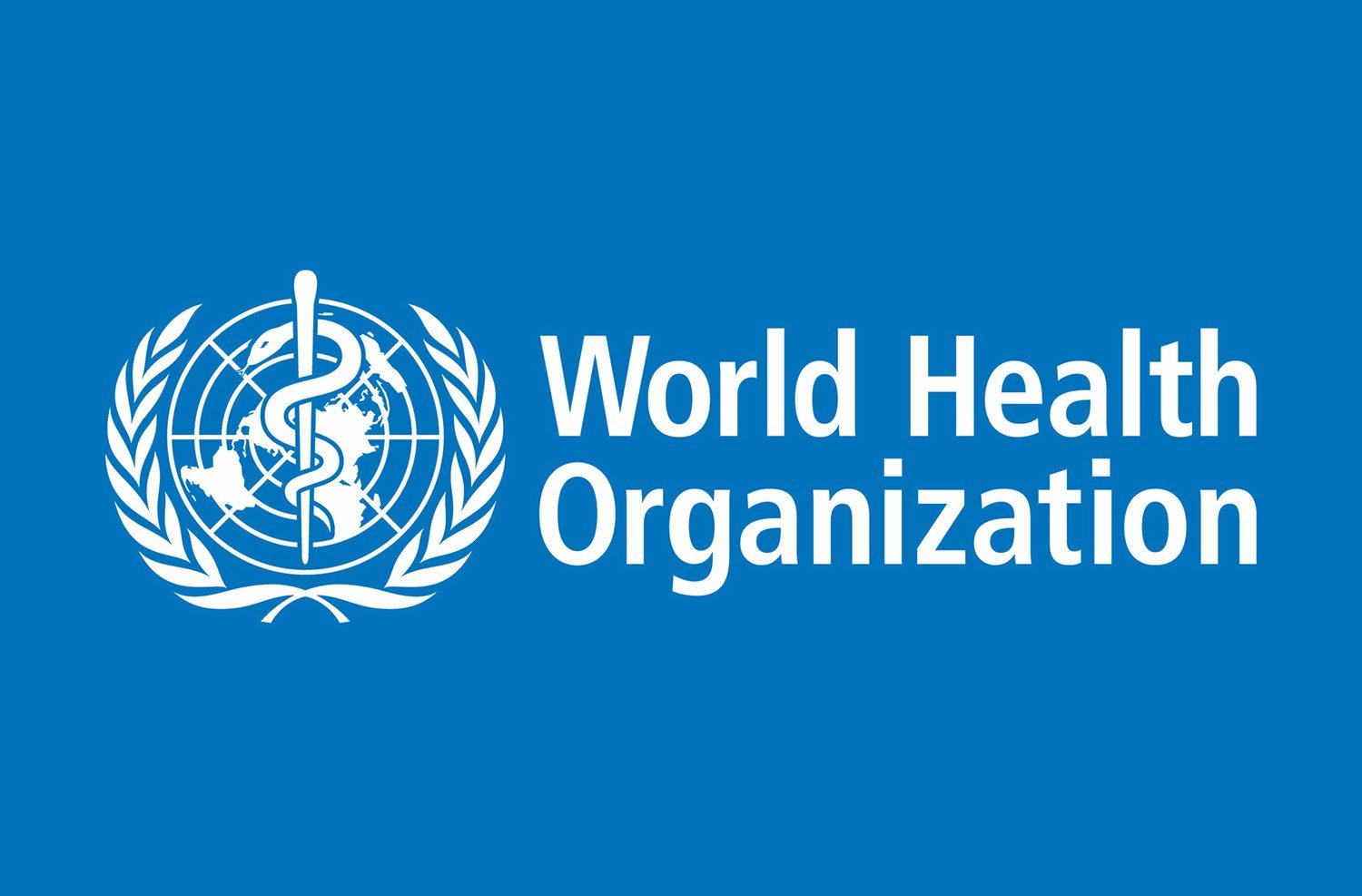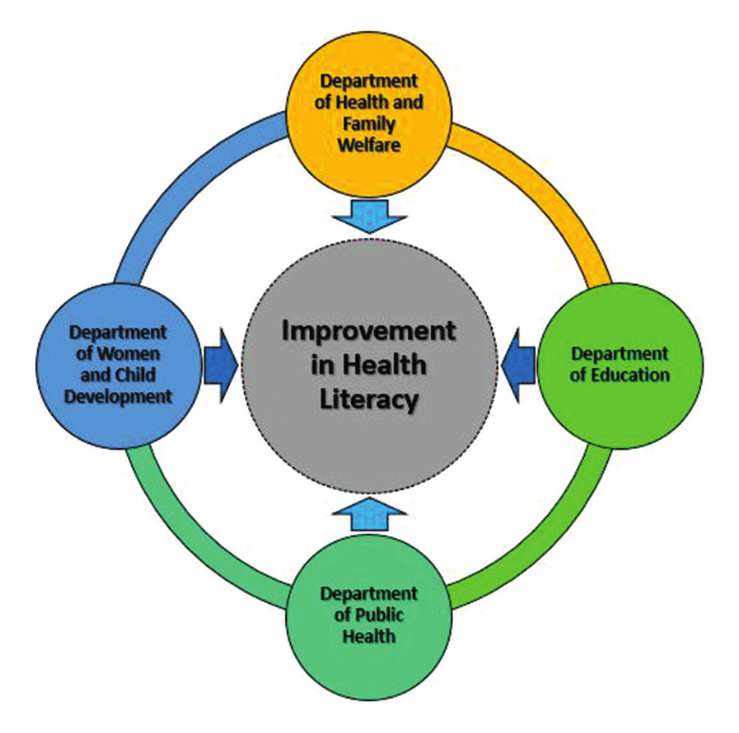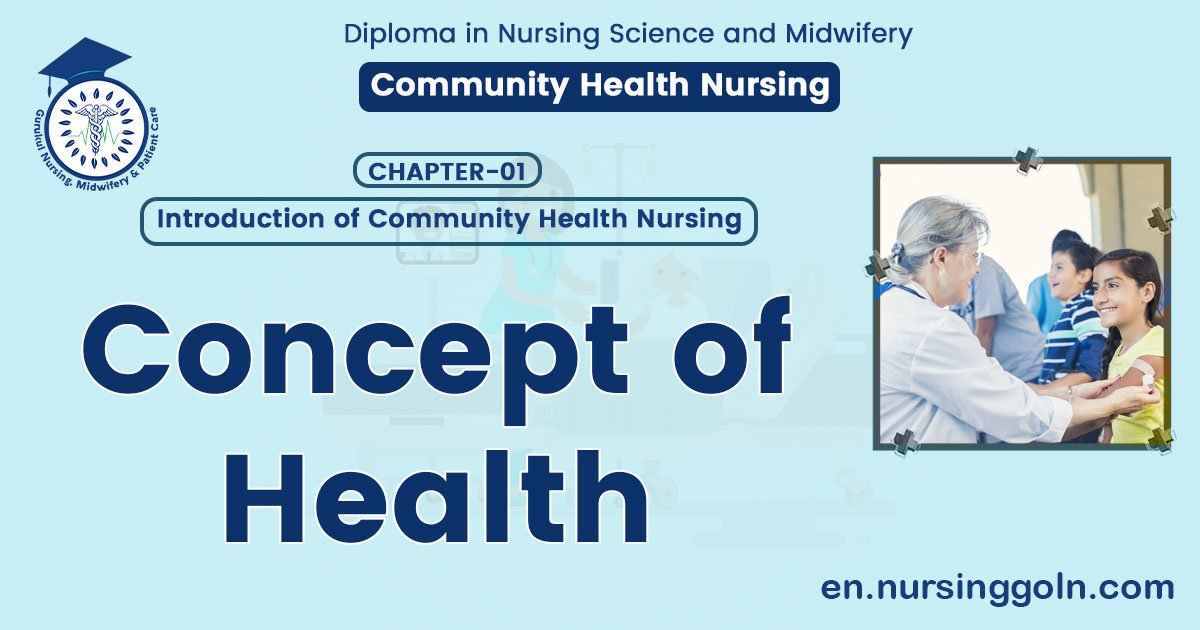Concept of health – This book covers the entire syllabus of “Community Health Nursing” prescribed by the Universities of Bangladesh- for Basic and diploma nursing students. We tried to accommodate latest information and topics.
This book is examination friendly setup according to the teachers’ lectures and examination’s questions. At the end of the book previous university questions are given. We hope in touch with the book students’ knowledge will be upgraded and flourished. The unique way of presentation may make your reading of the book a pleasurable experience.
Concept of health
Definition of health
The World Health Organization defines health positively as “a state of complete physical, mental, and social well-being and not merely the absence of disease or infirmity so that each citizen can lead a socially and economically productive life.”
Or
Health refers to a holistic state of well-being, which includes soundness of mind, body and spirit”

Criticism of the definition of health by WHO
- Too broad
- Health cannot be defined as a ‘state’ at all, but must be seen as a process of continuous adjustment to the changing demands of living and of the changing meanings we give to life.
- It is a dynamic concept.
- It helps people live well, work well and enjoy themselves,
- The WHO definition of health is therefore considered by many as an idealistic goal than a realistic proposition.
New philosophy of health
- Health is a fundamental human right
- Health is the essence of productive life and not the result of ever-increasing expenditure on medical care
- Health is interpectoral.
- Health is an integral part of development
- Health is central to the concept of quality of life.
- Health involves individuals, state and international responsibility.
- Health and its maintenance is a major social investment Health is worldwide social goal.
Changing concept of health
1. Biomedical concept: According to biomedical concept, health is nothing but absence of disease and if one was free from disease, then the person was considered healthy.
- The basis of this theory is the “germ theory of disease.”
- Criticism: Role of environment, social psychological & cultural determinants of health are ignored.
2. Ecological concept: According to ecological concept- health is a dynamic equilibrium between human being and his surroundings environment and disease is a maladjustment of
man to environment.
- The ecological concept raises two issues
- Imperfect man.
- Imperfect environment e.g. Air pollution, lack of safe water, bad sanitation
3. Psychosocial concept: According to psychosocial concept- health is not only a biomedical phenomenon but also influenced by some social, mental- cultural, economic and political factors, e.g.
Social factor :
- Poverty
- Illiteracy
- Habits and life style (Smoking, Drugs, Multiple sex partner)
Psychological factors :
- Anxiety
- Tension
- Emotional breakdown
4. Holistic Concept: This is the combination of all the above concepts. Health implies a sound mind, in a sound body, in a sound family, in a sound environment.
Holistic approach
The holistic approach implies that all sectors of society have an effect on health (in particular agriculture, animal husbandry, food, industry, education, housing, public works, communication and other sectors).
Most acceptable concept of health
Holistic concept is the most acceptable concept of health.
Justification:
The holistic model is a synthesis of all the above concepts. It recognizes the strength of social, economic, political and environmental influences on health. It has been variously described as a unified or multidimensional process involving the well-being of the whole person in the context of his environment.
The holistic approach implies that all sectors of society have an effect on health, in particular, agriculture, animal husbandry, food, industry, education, housing, public works, communications and other sectors.
Tools and techniques for the evaluation of physical health
- Self-assessment of overall health
- Inquiry into symptoms of ill health and risk factors.
- Inquiry into medications.
- Inquiry into levels of activity.
- Inquiry into use of medical service.
- Standardized questionnaires for cardio vascular disease.
- Standardized questionnaires for respiratory disease. Clinical examination.
- Nutrition and dietary assessment.
- Bio-chemical and laboratory investigation.
Positive health
The state of positive health implies the notion of “”perfect functioning” of the body and mind. It conceptualizes health biologically, psychologically and socially.
A person who enjoy health at three planes i.e. good physical, mental and social well-being is said to be in a state of positive health.
- Biologically every cell and organ is functioning at optimum capacity.
- Psychological feels a sense of perfect wellbeing.
- Socially Individuals adjusts his society.
Measures for Maintaining Good Health
- Health Personal hygiene,
- Daily bath,
- Use clean dresses,
- Taking balanced diet,
- Regular exercise & rest,
- Avoiding smoking,
- Avoiding alcohol,
- Avoiding drugs,
- Good housing,
- Proper sanitation,
- Seek treatment if any ailment,
- Practicing prayer.
Multi-sectoral Responsibility of Health
- Multi-sectoral Responsibility of Health is multi-factorial. Various factors in the environment are directly or indirectly related to health. Thereby, health sector & other health-related sectors such as agriculture, education, animal husbandry, nutrition, communication, housing, sanitation, water supply, etc. together have the responsibility to maintain health of a community.

Figure : Departments related to Multi-sectoral Responsibility of Health
